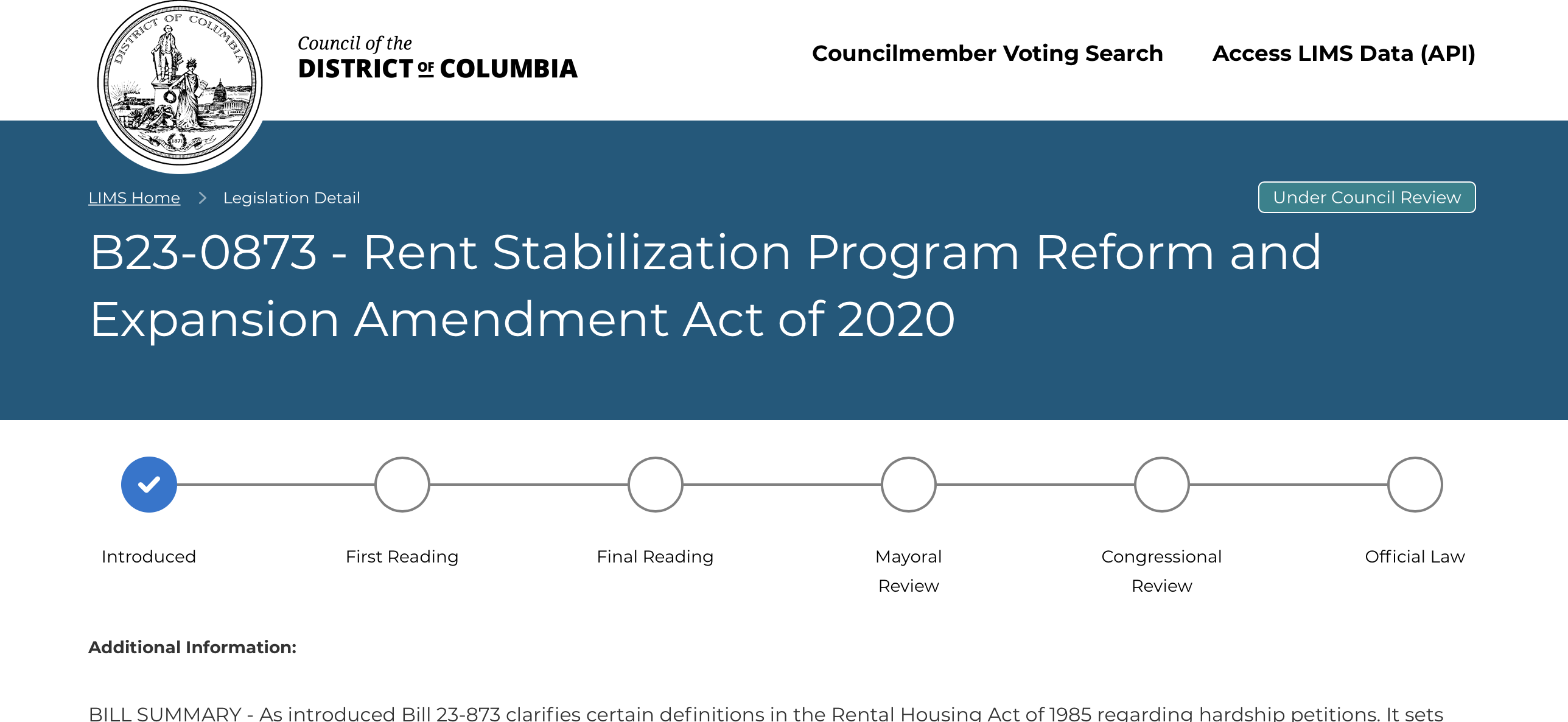
On Monday, November 9, D.C. Policy Center’s Executive Director, Yesim Sayin, is testifying on B23-873, the “Rent Stabilization Program Reform and Expansion Amendment Act of 2020.” A brief version of her testimony is printed below. Download her full testimony here.
Good morning, Chairwoman Bonds and members of the Committee on Housing & Neighborhood Revitalization. My name is Yesim Sayin Taylor and I am the Executive Director of the D.C. Policy Center, an independent, nonpartisan think tank committed to advancing policies for a strong and vibrant economy in the District of Columbia. I thank you for the opportunity to testify on Bill 23-873.
Today, the D.C. Policy Center published a policy brief analyzing the potential impacts of B23-873. Here are the main takeaways from this study:
- At present, D.C. has 72,878 rent-controlled units. If the Council enacted this bill today, the number of rent-controlled units would immediately increase by 13,245. Most these units are in small buildings with four units, concentrated in Ward 5.
- Over time, through 2033, as are buildings are rolled into the rent-controlled stock, 26,300 more units would be impacted. 15,200 of these units are in Ward 6.
- Lower rents would reduce net operating incomes, which, in return would reduce taxable assessments. Under B23-873, the beginning impacts would be muted because the pandemic-induced economic recession is already putting a downward pressure on rents and assessments. But over time, as the economy recovers and as more units are added, the value and tax losses could be significant.
- Compared to a very conservative baseline of 2.9 percent growth in taxable assessments (the projected growth for 2024 in the CFO’s September revenue estimates), B23-873 would likely result in assessed values that are lower by $3 billion by 2033—a loss of $134M in tax revenue combined between 2021-2033.
- Compared to a baseline growth that mimics how assessed values grew between 2014-19 period, B23-873 could produce assessed values that are lower by $6 billion—a loss of $270M in taxes.
Importantly, there is no guarantee that B23-873 would create citywide benefits for tenants. Some units would be converted to condos, and others might never be built. Further, there is a rental market beyond rental apartments in the city, made up of single-family homes and condominiums, and basements. This shadow rental market has an estimated 55,000 units within the financial reach of households that make under 80 percent of AMI. Affluent renters with limited access to the rent-controlled stock could bid up the rents in the shadow rental market, displacing lower-income households.
Thank you for the opportunity to testify. I am happy to answer any questions you might have.
Quick links
- Go to the main report page
- Read the Executive Summary
- Read the full report (or download a PDF version)
